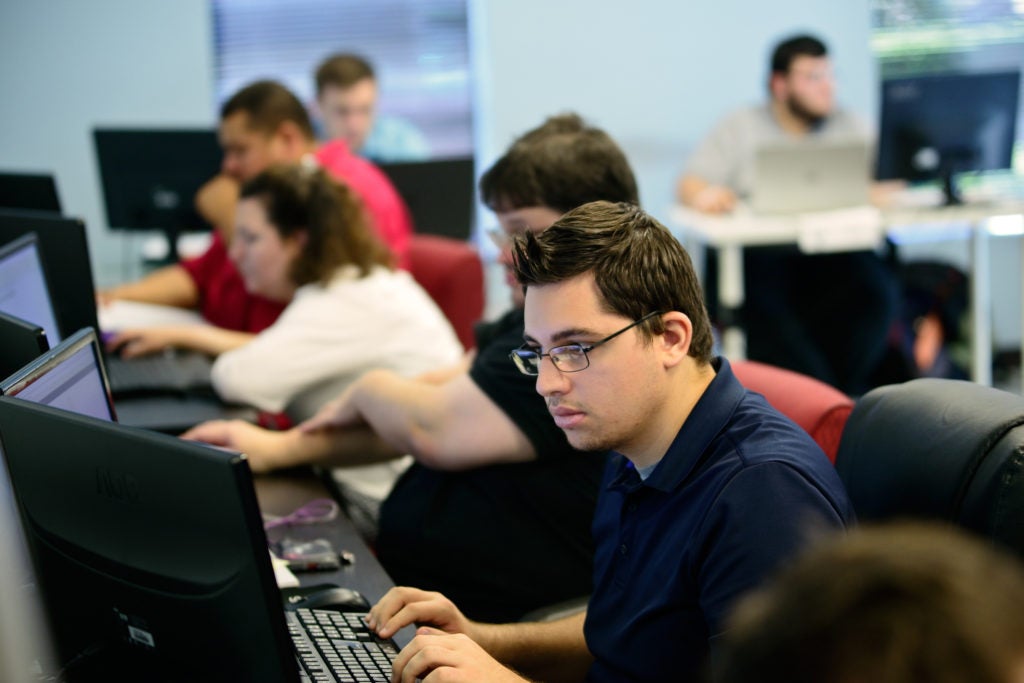Learn how AutonomyWorks is set to create 10,000 jobs for people with autism.
Define the Problem
Dave observed a low employment rate for people with autism, and through an assessment of the employment landscape, determined that this low employment was due to a lack of potential employers’ understanding around the value of their skills. Indeed, people with autism, like all people, have valuable skills that are useful in many business contexts, and in overlooking this group, those businesses were missing an important opportunity.
Design Impact
Dave wanted to create a business that would allow people with autism to do work that leverages their unique skillsets–something that was not happening in traditional workplaces. Based on research and personal experience, he decided that AutonomyWorks would focus on marketing operations, content management, and reporting and analytics services.
Build
To build the business thoughtfully and develop a model that works for both clients and employees, Dave and his collaborators carefully hired operational staff and partnered with the Division of Rehabilitation Services to learn more about what people with autism need in order to thrive in a workplace.
Scale
AutonomyWorks is growing rapidly in its current location. Its next step is to expand in the Chicagoland area first and then scale nationally, with a long-term goal of employing upwards of 10,000 individuals with autism.



